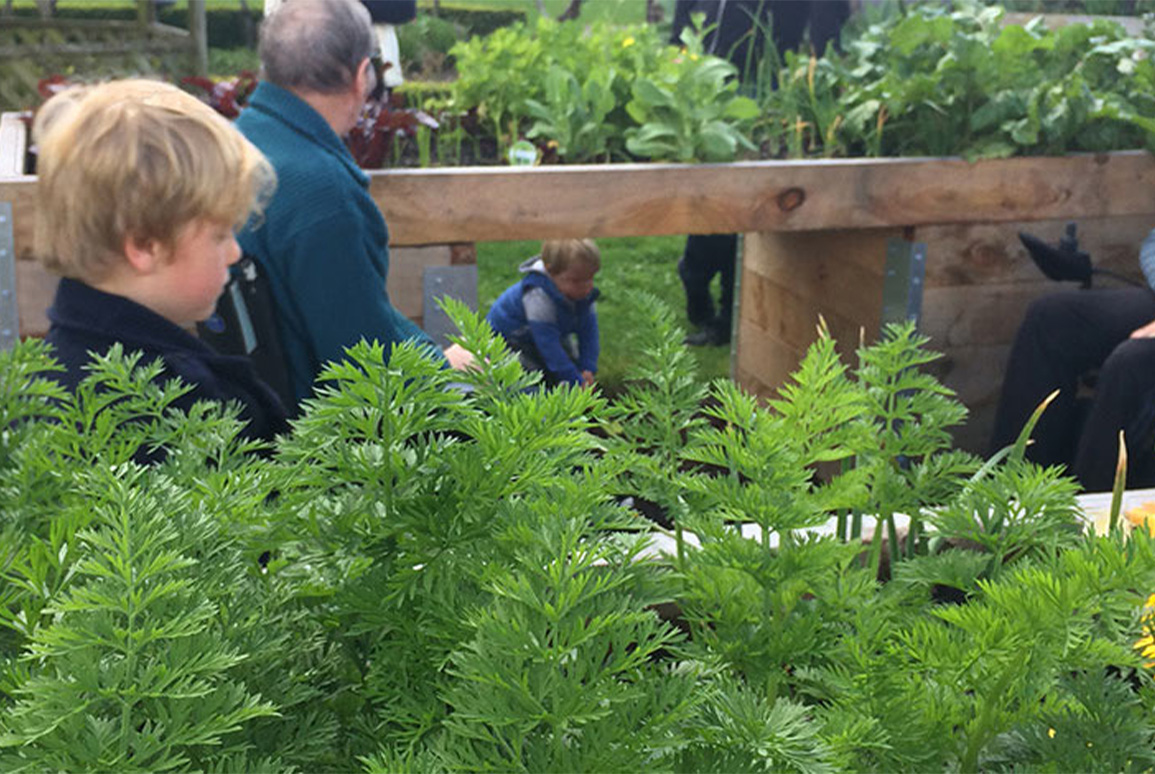Leadership project continues to bear fruit
16 December 2015
At Elizabeth Knox Home and Hospital in Epsom the kitchen is overflowing as aged residents reactivate their green fingers alongside youngsters in the ‘Garden of Knowledge’ – a legacy leadership project landscape architect Heather Wilkins helped create.

The project is an outcome of the ‘Future Auckland Leaders Programme’, from which Heather recently graduated. The two-year programme, run by the Committee for Auckland, enables nominated participants to strengthen their leadership qualities in ways that will contribute to Auckland’s future. In the second year, participants research and deliver a legacy project that seeks to address a ‘need’ in the city and catalyse ongoing benefits.
The Garden of Knowledge project was one of five selected for implementation from 85 original ideas. It was prompted by research, which shows that people living in residential aged care facilities are often socially isolated and disempowered from participating in community activities.
“The project objective was to improve quality of life for a group of older people by establishing a community garden in the grounds of a rest home, which would be run by the residents together with local youth,” Heather explains. “A key criteria was that the project had to be unique and we knew of no other community garden in Auckland that has been designed to bring old and young together in this way.”
A team of six ‘future leaders’ planned and organised the project’s implementation. A suitable site was offered at Elizabeth Knox Home, where Boffa Miskell provides landscape architectural services. Staff at the home embraced the concept, as it fitted their quality of life residential care objectives. The staff and residents took charge of purchasing plants and seeds while the leadership team organised the design and delivery of construction materials. Meanwhile, St Cuthbert’s College and the St George-Epsom Scout Group welcomed the opportunity for their students and scouts to participate.
On project build day, volunteers constructed four new wheelchair-accessible garden beds and refurbished two existing ones. The construction, planting and ensuing maintenance was intentionally planned in a non-prescriptive way to encourage young and old to interact and make their own decisions.
“It didn’t all go to plan because we needed to stand back,” Heather recalls, “but, with time, the older residents visibly regained their confidence as they shared their knowledge and started making decisions about the ongoing planting, maintenance and harvest routines. They have also been stimulated by the interaction with youngsters – comparing today’s youth with their own.”
So successful has the garden been that more space is needed and stage two is now being planned. In the meantime, with the school holidays imminent, the Newmarket Rotary Club has signed up to help with weeding until school starts again in 2016 when young and old will again garden together.
Reflecting on the leadership programme, Heather says she particularly values the opportunity, that would not otherwise have been possible, to form a network of like-minded young leaders across a wide spectrum of organisations, and to gain insight into the myriad of issues that will confront Auckland as it grows.

